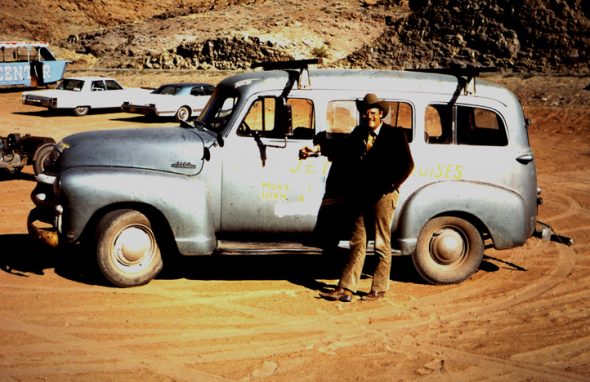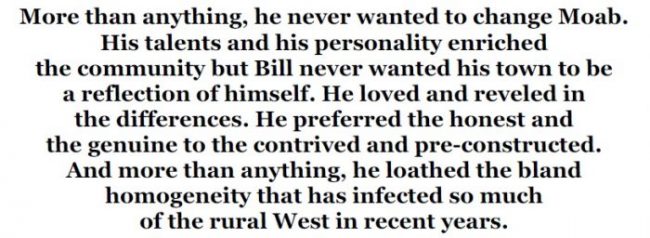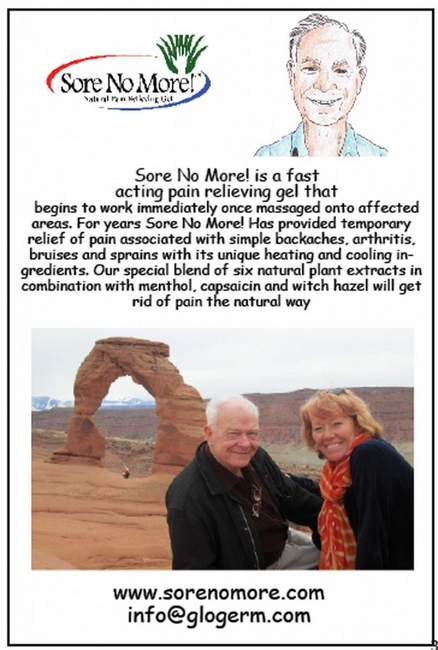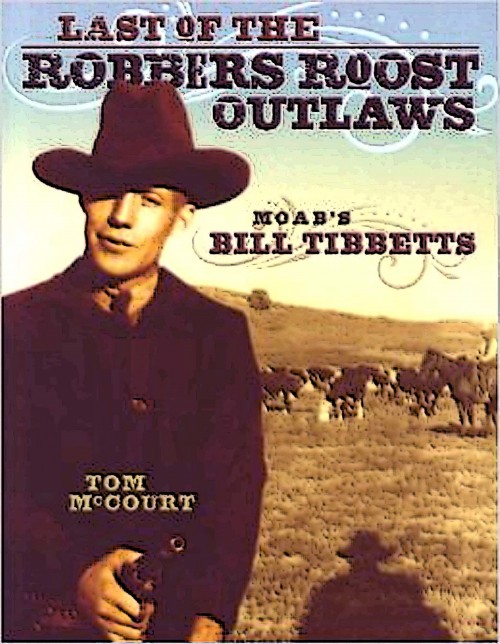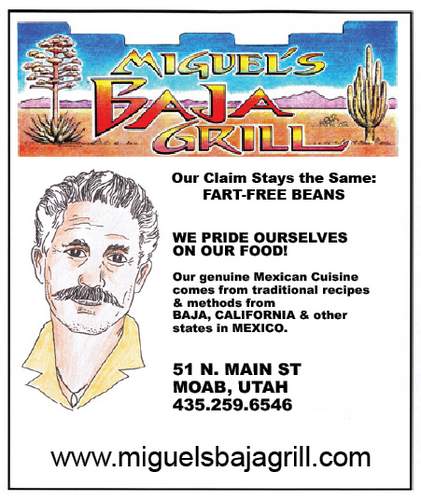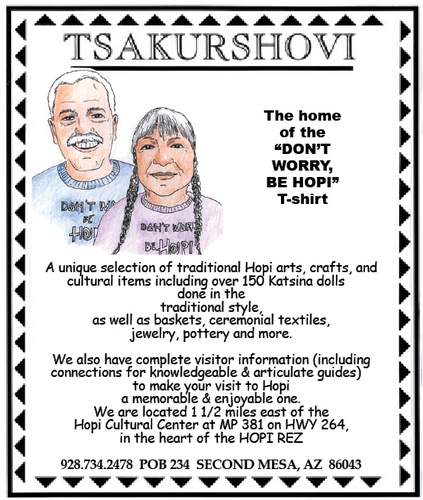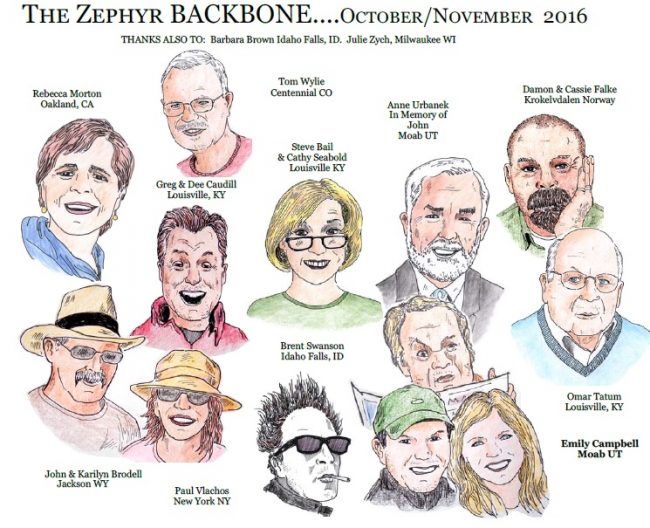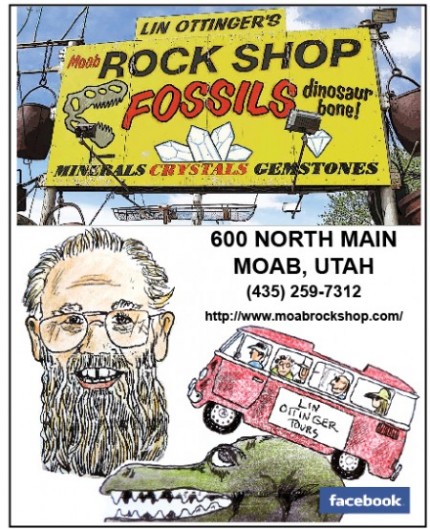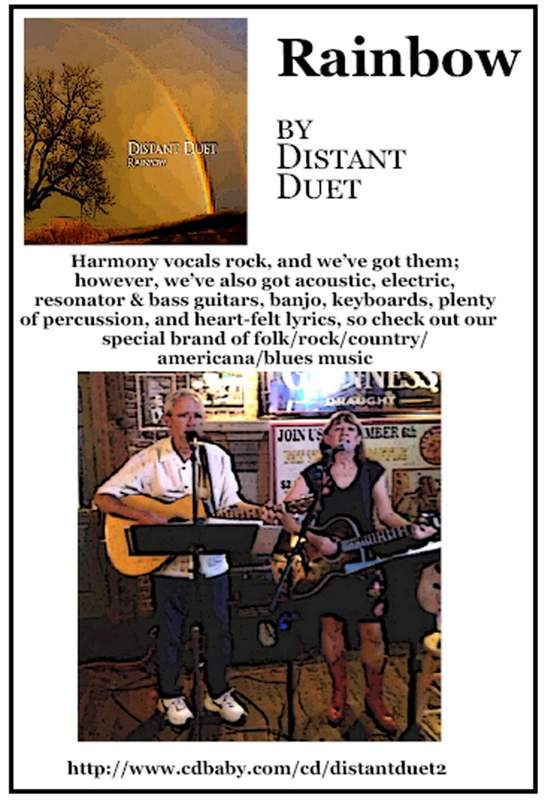Late on a Friday night last October, word came to me that my best friend, Bill Benge, had died suddenly of a massive heart attack. I came to realize that Life for many of us who knew and loved Bill would never quite be the same again. He was only 60 years old, and though he had been plagued by health problems for years, he was remarkably happy at the end of his life. Or maybe at peace is a better way to put it— happy in a very introspective way. It was a relief to know his spirits were so high on that last evening, but all of us wish he’d had more time to feel so good.
We had both come to Moab as young men, more than 30 years ago, from large cities and had chosen, for our own reasons, to make a life in this once rural and largely unknown community. Most of you know the facts of Bill’s life—he was a lawyer by trade and in 1974, became the youngest person in Utah history to be elected as a county attorney. He served as Grand County Attorney for most of the next three decades. After he retired, he moved briefly to Salt Lake City, but came back to Moab, less than a year before his death, and opened a private practice.
I met Bill, just a few months after his election and for years, I only knew him well enough to say hello and chat a bit at old City Market or the post office. Later, however, at a very low point in my life, Bill showed up to offer support and comfort and we forged a friendship that lasted more than 20 years. We had our squabbles and disagreements, but could never seem to find a reason to stay mad.
In the last year of Bill’s life, we spent a significant amount of our time together reminiscing and lamenting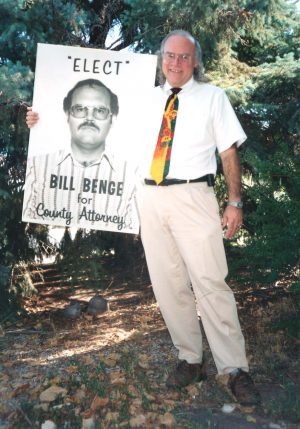 the changes that had transformed Moab in the last decade. We were very good at it. It had been, for years, a quiet, albeit oddly diverse little community; now, as we all know, in little more than a decade, Moab has become just another New West real estate market to be exploited and sold off in quarter-acre parcels. We barely recognized our old town anymore.
the changes that had transformed Moab in the last decade. We were very good at it. It had been, for years, a quiet, albeit oddly diverse little community; now, as we all know, in little more than a decade, Moab has become just another New West real estate market to be exploited and sold off in quarter-acre parcels. We barely recognized our old town anymore.
A couple weeks later, I found myself driving north to Moab, to Bill’s funeral. Along the way, I passed all the faux adobe condo developments, in various stages of completion, that were consuming the last remnants of Spanish Valley’s alfalfa fields. And Moab, in late October, was busy, even hectic, with tourist traffic and the effects of a seasonally bloated residential population.
Yet again, I found myself cursing this New West phenomenon that had robbed me of the quieter world I still treasure, if only in my mind and memory. But as I sat in my chair at the funeral home and waited for the service to begin, I looked at all the faces around me and was struck by the fact that many of us were Moab’s first New Westerners. Many of us had come from urban areas across America to Moab, decades ago, seeking a simpler and quieter life; no one was more prototypical than Bill.
Bill Benge grew up in the Bay Area and as a young man, embraced and absorbed the many cultural opportunities that an international city like San Francisco offered. His taste in music was eclectic and extensive. He read more books in a week than most of us might hope to skim in a year. And he traveled the world. Bill was my walking, talking encyclopedia. He was often better, faster and more accurate than a Google search. I liked to call him Renaissance Man—Ren Man for short, and he appreciated the title.
And yet, despite his knowledge and educational background and his erudite ways, he preferred the 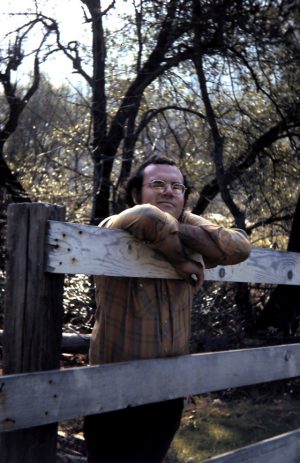 quieter and more honest life that he found in Moab. He never wore his sophistication on his sleeve, though he never tried to hide it either. It was simply who Bill was and in that spirit, his friends were as broad and diverse as his vocabulary. He counted among those closest to him, teachers and artists and writers—he was Ed Abbey’s attorney while Ed lived in Moab—but also ranchers and miners and carpenters and short-order cooks and even some of the men and women he’d prosecuted over the years.
quieter and more honest life that he found in Moab. He never wore his sophistication on his sleeve, though he never tried to hide it either. It was simply who Bill was and in that spirit, his friends were as broad and diverse as his vocabulary. He counted among those closest to him, teachers and artists and writers—he was Ed Abbey’s attorney while Ed lived in Moab—but also ranchers and miners and carpenters and short-order cooks and even some of the men and women he’d prosecuted over the years.
More than anything, he never wanted to change Moab. His talents and his personality enriched the community but Bill never wanted his town to be a reflection of himself. He loved and reveled in the differences. He preferred the honest and the genuine to the contrived and pre-constructed. And more than anything, he loathed the bland homogeneity that has infected so much of the rural West in recent years.
Today’s latest New West immigrants could learn something from Bill. They might try embracing a small town on its terms, not theirs. They might consider that different values can often complement each other, instead of conflict. And that in the end, the New West should strive to be the sum of its many different parts, and not an exclusive and regimented and inflexible culture determined to rid itself of the very qualities in a small town that brought them there in the first place.
I miss my buddy Bill. And I’d like to think that somewhere, out there, he misses us too. But I hope, if there’s a Great Moab Diner in the Sky, they keep a booth open for him, 24 hours a day. Adios amigo.
To read the PDF version of this article, click here.
To comment, scroll to the bottom of the page.
Don’t forget the Zephyr ads! All links are hot!


